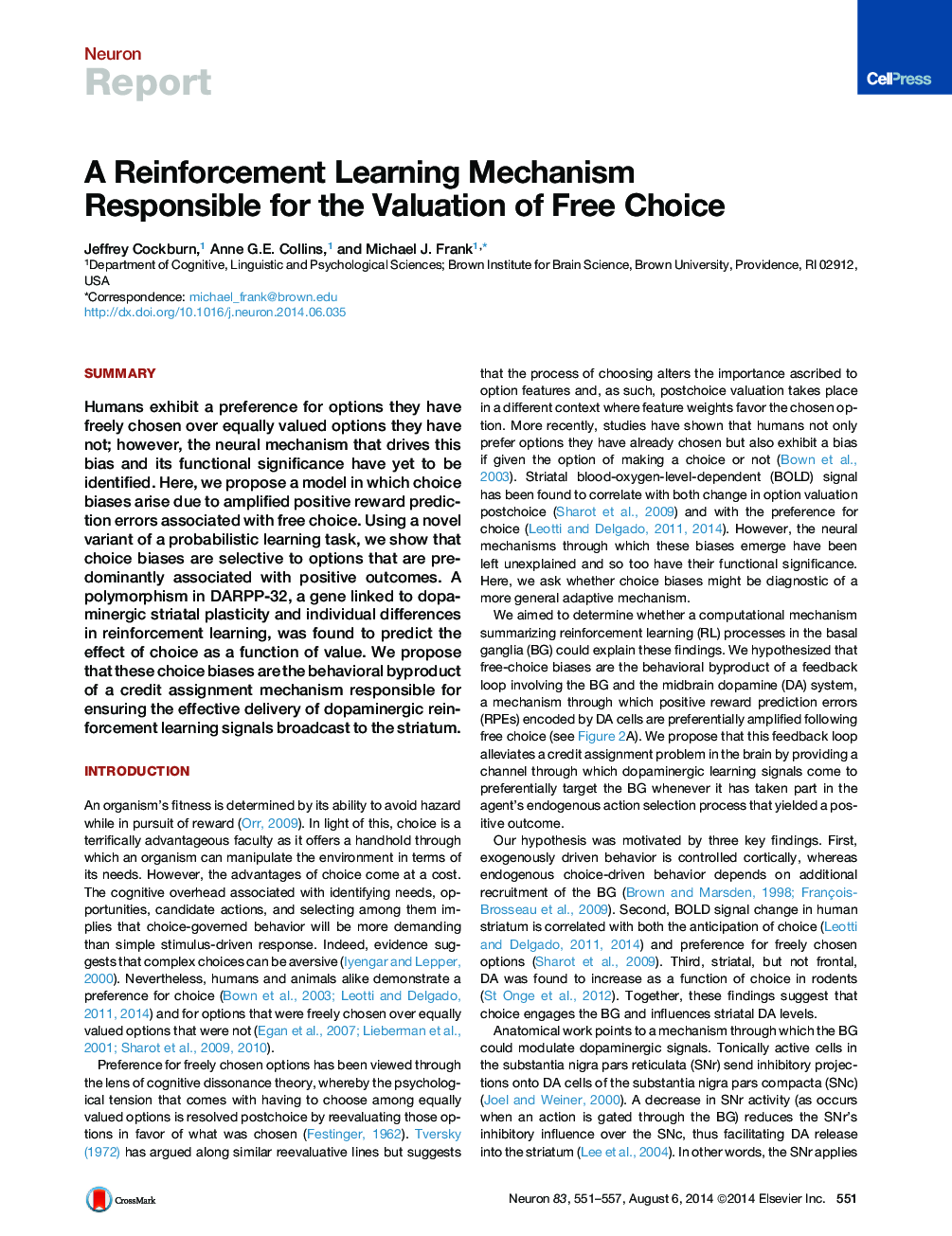| Article ID | Journal | Published Year | Pages | File Type |
|---|---|---|---|---|
| 4320951 | Neuron | 2014 | 7 Pages |
•Participants exhibit a biased preference for freely chosen rewarding options•DARPP-32 genotype predicts choice bias as a function of expected value•Bias is mirrored by a model that amplifies positive free-choice learning signals•Choice bias is the byproduct of a mechanism that refines learning signal fidelity
SummaryHumans exhibit a preference for options they have freely chosen over equally valued options they have not; however, the neural mechanism that drives this bias and its functional significance have yet to be identified. Here, we propose a model in which choice biases arise due to amplified positive reward prediction errors associated with free choice. Using a novel variant of a probabilistic learning task, we show that choice biases are selective to options that are predominantly associated with positive outcomes. A polymorphism in DARPP-32, a gene linked to dopaminergic striatal plasticity and individual differences in reinforcement learning, was found to predict the effect of choice as a function of value. We propose that these choice biases are the behavioral byproduct of a credit assignment mechanism responsible for ensuring the effective delivery of dopaminergic reinforcement learning signals broadcast to the striatum.
